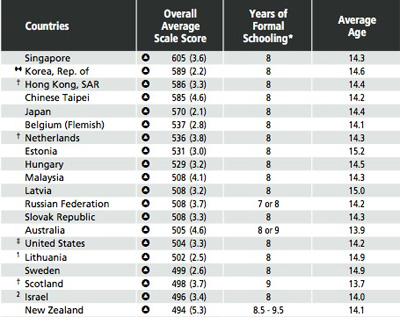Student-evaluation sneak preview : I am friendly and
extremely helpful but have a somewhat chaotic teaching style and am way
too ambitious as regards content… I was about to deny vehemently
all assertions (except for the chaotic bit) but may have to change my
mind after reading this report on
Mark Rowan’s book ‘Symmetry and the monster’ (see also
my post
)
Oxford University Press considers this book
As an erstwhile
“a must-read for all fans of popular science”. In his blog,
Lieven le Bruyn, professor of algebra and geometry at the University of
Antwerp, suggests that “Mark Ronan has written a beautiful book
intended for the general public”. However, he goes on to say:
“this year I’ve tried to explain to an exceptionally
good second year of undergraduates, but failed miserably Perhaps
I’ll give it another (downkeyed) try using Symmetry and the
Monster as reading material”.
mathematician, I found the book more suited to exceptional maths
undergraduates than to the general public and would strongly encourage
authors and/or publishers to pass such works before a few fans of
popular science before going to press. Peggie Rimmer,
Satigny.
Well, this ‘exceptionally good
year’ has moved on and I had to teach a course ‘Elementary
Algebraic Geometry’ to them last semester. I had the crazy idea to
approach this in a historical perspective : first I did the
Hilbert-Noether period (translating geometry to ideal theory of
polynomial rings), then the Krull-Weil-Zariski period (defining
everything in terms of coordinate rings) to finish off with the
Serre-Grothendieck period (introducing scheme theory)… Not
surprisingly, I lost everyone after 1920. Once again there were
complaints that I was expecting way too much from them etc. etc. and I
was about to apologize and promise I’ll stick to a doable course
next year (something along the lines of Miles Reid’s
‘Undergraduate Algebraic Geometry’) when one of the students
(admittedly, probably the best of this ‘exceptional year’)
decided to do all exercises of the first two chapters of Fulton’s
‘Algebraic Curves’ to become more accustomed to the subject.
Afterwards he told me “You know, I wouldn’t change the
course too much, now that I did all these exercises I realize that your
course notes are not that bad after all…”. Yeah, thanks!


